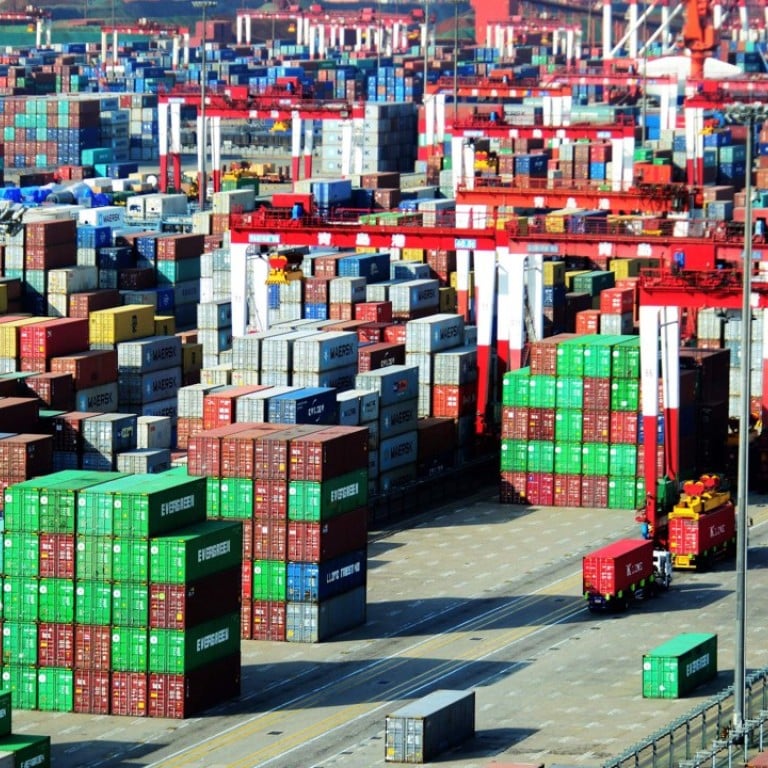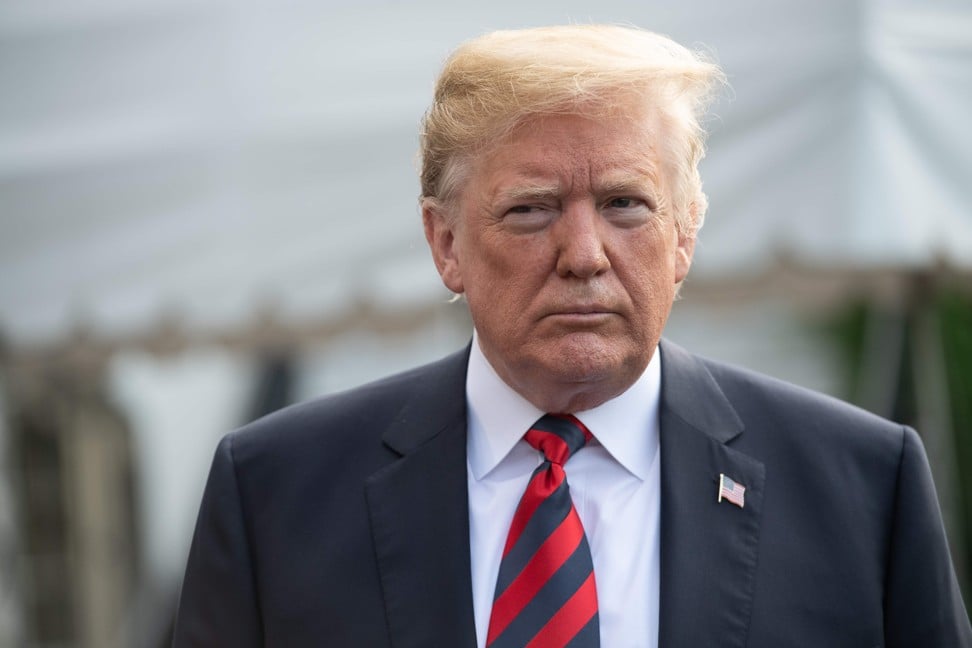
Donald Trump can outgun China on trade tariffs but Beijing has other ways to fight back
American companies operating in China might feel the brunt of any retaliatory measures, analysts say
Beijing said on Tuesday it will use “quantitative and qualitative” measures to hit back at US President Donald Trump’s act of “blackmail” in threatening to impose tariffs on US$200 billion worth of Chinese products.
The statement, by China’s Ministry of Commerce, suggests the government is considering options other than tariffs as its tit-for-tat trade row with Washington rumbles on.
Trump’s move hit China’s stock market hard as well as pushing Wall Street lower at the start of trade on Tuesday.
Shanghai stocks lost nearly 4 per cent to a two-year low, prompting China’s central bank governor urged investors to “stay calm”, adding that the central bank will work to keep systemic risks at bay.
“There are ups and downs in the stock market and so, investors should be calm and rational,” Yi Gang, governor of the People’s Bank of China, told official Shanghai Securities News, which was posted on the central bank’s website.
Wei Jianguo, a former vice-minister of commerce, said the ministry’s announcement meant it was likely that Beijing would now extend the range and duration of its countermeasures.
“Aircraft, chips and energy imported from the US could be subject to [punitive tariffs]” he said.
“China is also likely to take action against the US service trade, including transport, tourism and education.”
Wei, who is now a deputy secretary general at the Chinese Centre for International Economic Exchanges, a state-backed think tank, said Beijing might also make its countermeasures permanent rather than temporary, and if the situation worsened US firms could be excluded from China’s financial markets.
A commerce ministry spokeswoman contacted by the South China Morning Post declined to comment on the statement.
When Trump announced plans on Friday to impose 25 per cent tariffs on US$50 billion worth of Chinese imports, Beijing responded by publishing a list of US products – including everything from soybeans to cars – that it would subject to retaliatory tariffs of the “same scale and intensity”.
The problem for Beijing now, however, is that by raising the tariff stakes to 10 per cent on US$200 billion worth of goods, Trump has put any like for like retaliatory move out of China’s reach, as it simply does not buy that amount of American goods.
By Beijing’s own calculations, the value of US product imports last year was US$154 billion.
Zhu Haibin, chief China economist at JPMorgan in Hong Kong, said that rather than trying to match the US on tariffs, Beijing might have to adopt a different approach.
“Any further action might include punitive measures against American companies operating in China, such as removing privileges and excluding them from any future deals,” he said.
However, deliberately targeting US firms would counter Beijing’s efforts to paint itself as a business-friendly nation and could damage its own interests.
While criticising Trump, the commerce ministry said China would defend free trade and remain committed to opening up “no matter how the external environment changes”.
Those comments came a day after US Secretary of State Mike Pompeo described Beijing’s trade practices as “predatory economics 101” and its rhetoric on openness and globalisation as “a joke”.
Louis Kuijs, head of Asia Economics at Oxford Economics, agreed that China would not be able to compete with the US on a tariff-per-dollar of imports basis.
“China will run out of ammunition sooner than the US,” he wrote in a note published on Tuesday.
However, “history shows that there are various other measures [China] could take to inflict pain on US companies, especially those present in China, including scaled up health, safety and tax checks, delaying the imports of goods, and boycotts of US goods”, he said.
China’s foreign ministry also commented on the trade row on Tuesday, and while failing to offer any new ideas on the issue, it repeated the official line that although Beijing does not want a trade war, it is not afraid of fighting one.
Spokesman Geng Shuang told a press briefing that the US should “stop its damaging words and deeds”.
Meanwhile, the state-backed tabloid Global Times said in an editorial that Trump was gambling with the “US public interest” by escalating the trade row with China.
Trump “wants to fight a trade war with China, but he hopes to control the scale of the trade war in a way that China does not fight back, so he can … show that his hardline policy works”, it said.
But neither the Chinese government nor Chinese society would “endure his blackmail”, it said.
Shi Yinhong, a professor of international relations at Renmin University of China, said that with the world’s two largest economies now embroiled in “a semi economic cold war”, Beijing faced the challenge of getting Trump back to the negotiating table.
“China can make compromises by boosting imports from the US, lowering market entry restrictions for US businesses … but it’s hard for China to make compromises at the structural level such as significantly reducing the role the state plays in economic activities,” he said.
The escalating trade dispute caused Chinese stocks to slide on Tuesday, the first trading day after the long weekend.
The Shanghai Composite Index ended down 3.8 per cent, while a gauge of technology stocks suffered its biggest daily loss for two years. The yuan also fell to its lowest level against the US dollar for more than five months.




